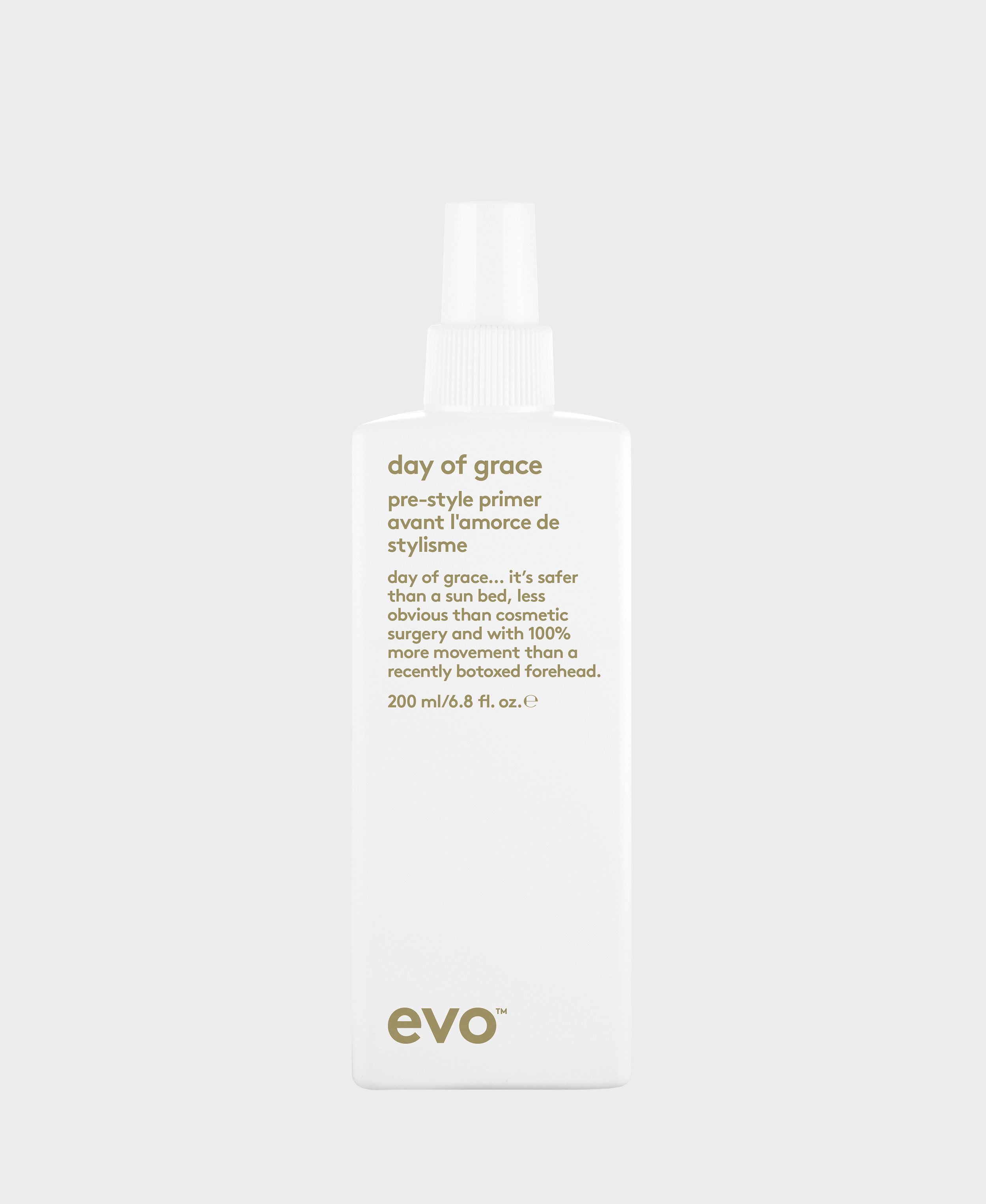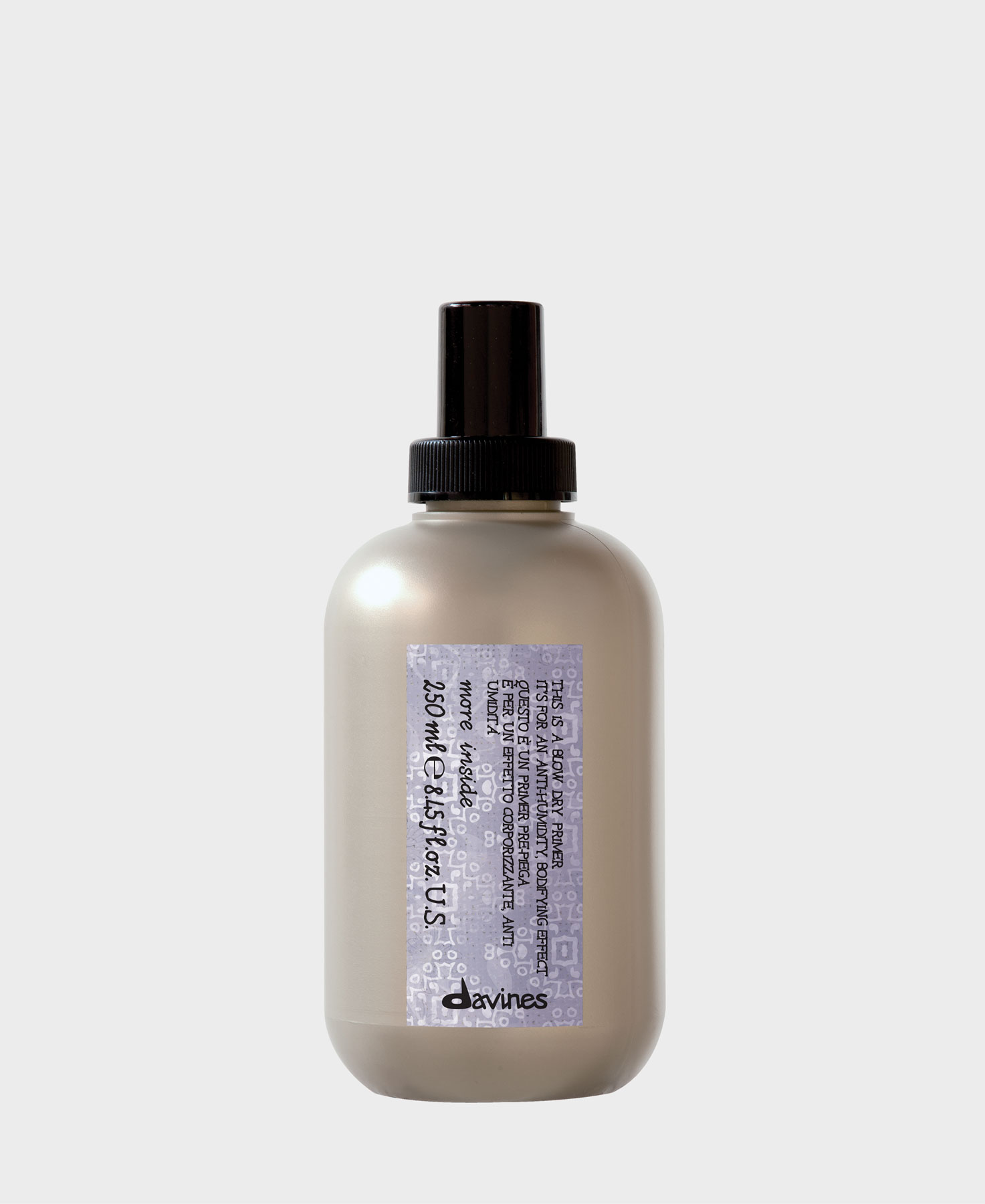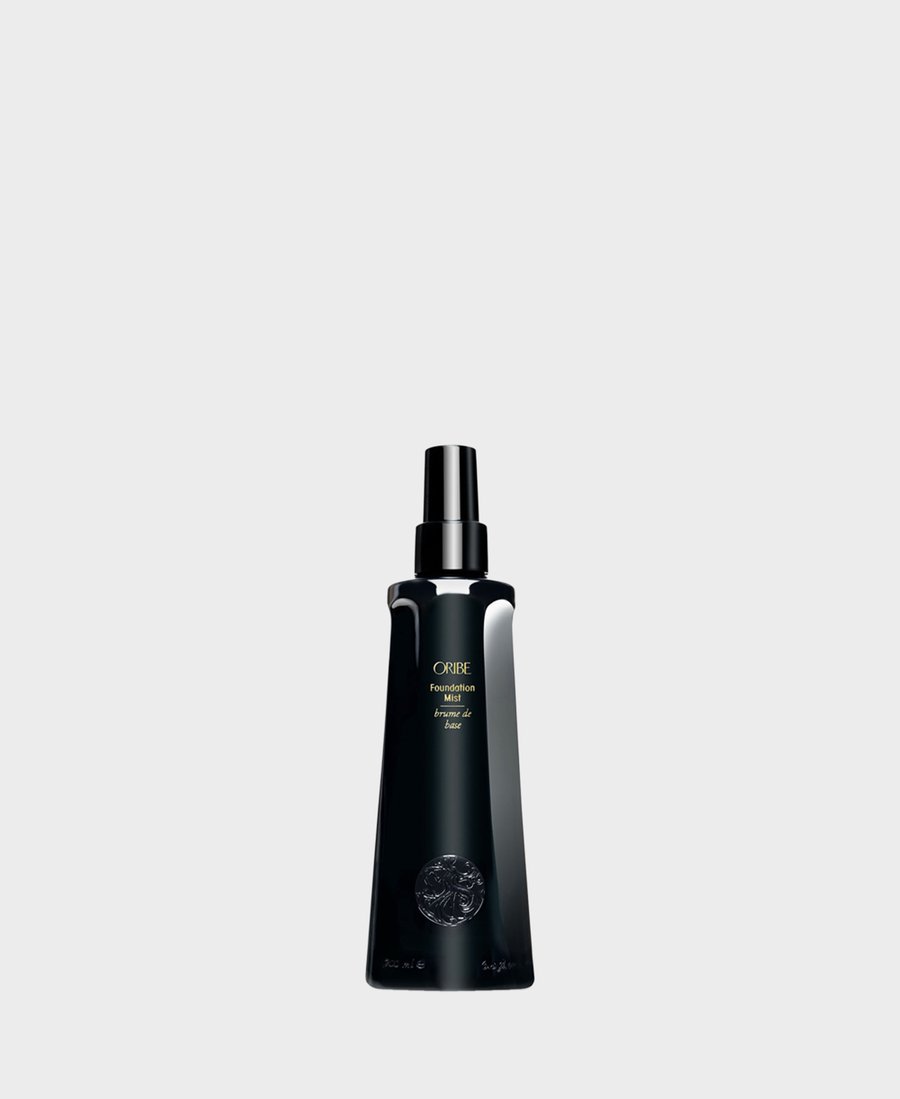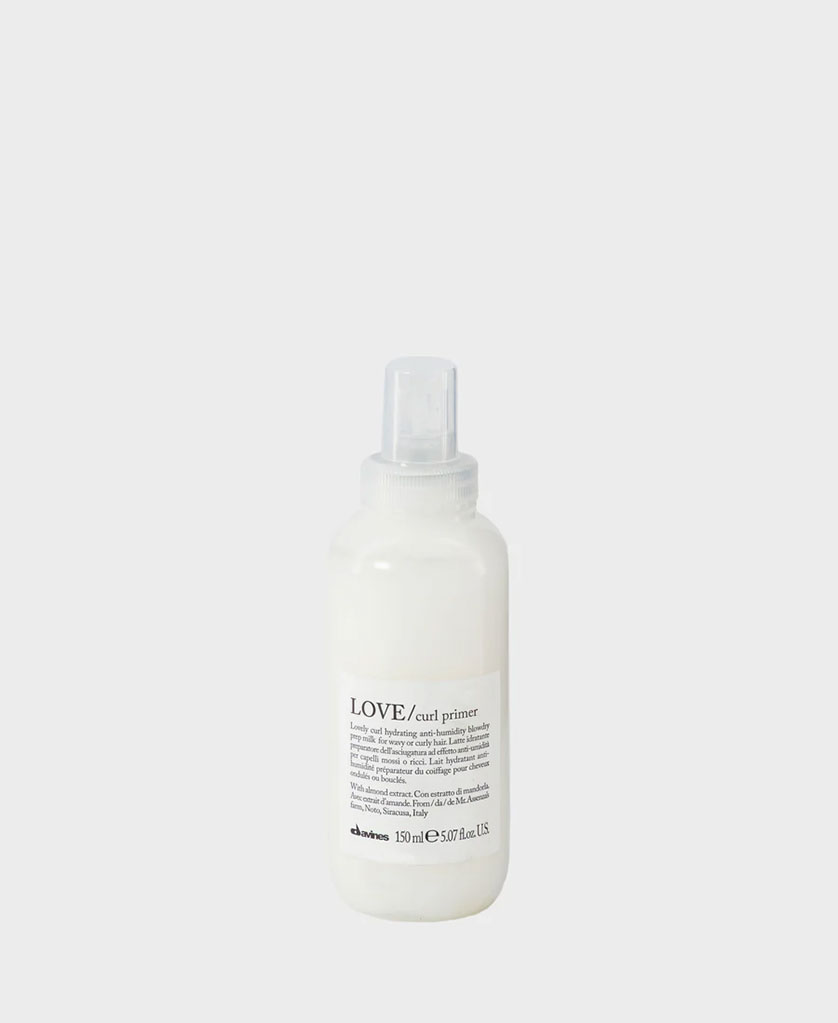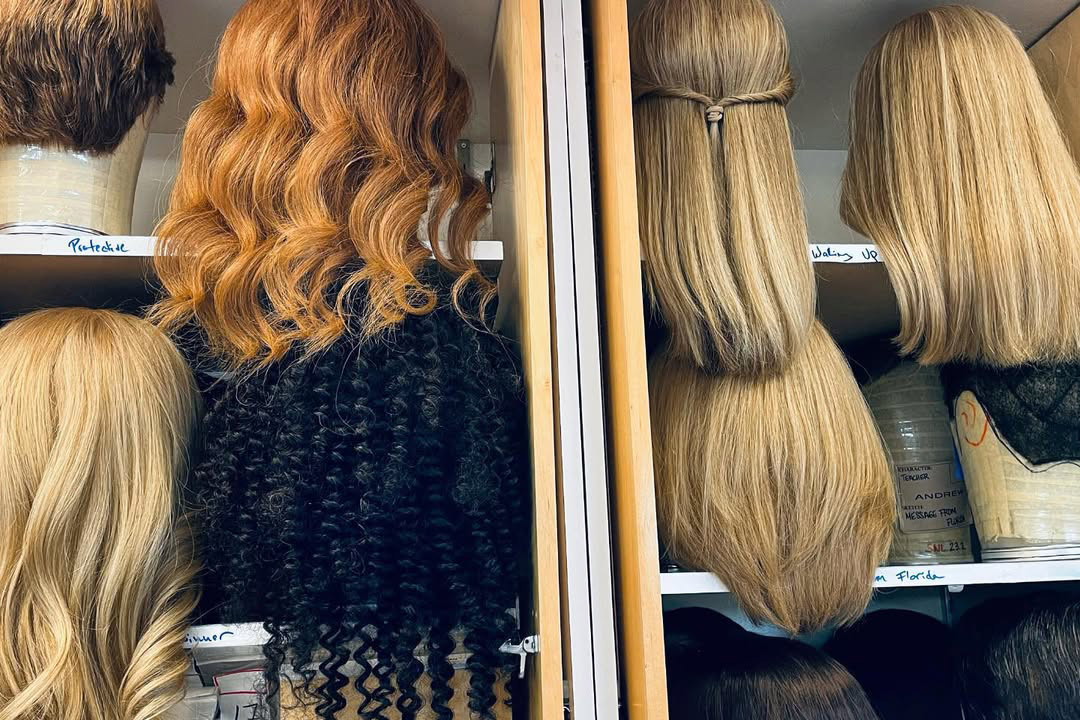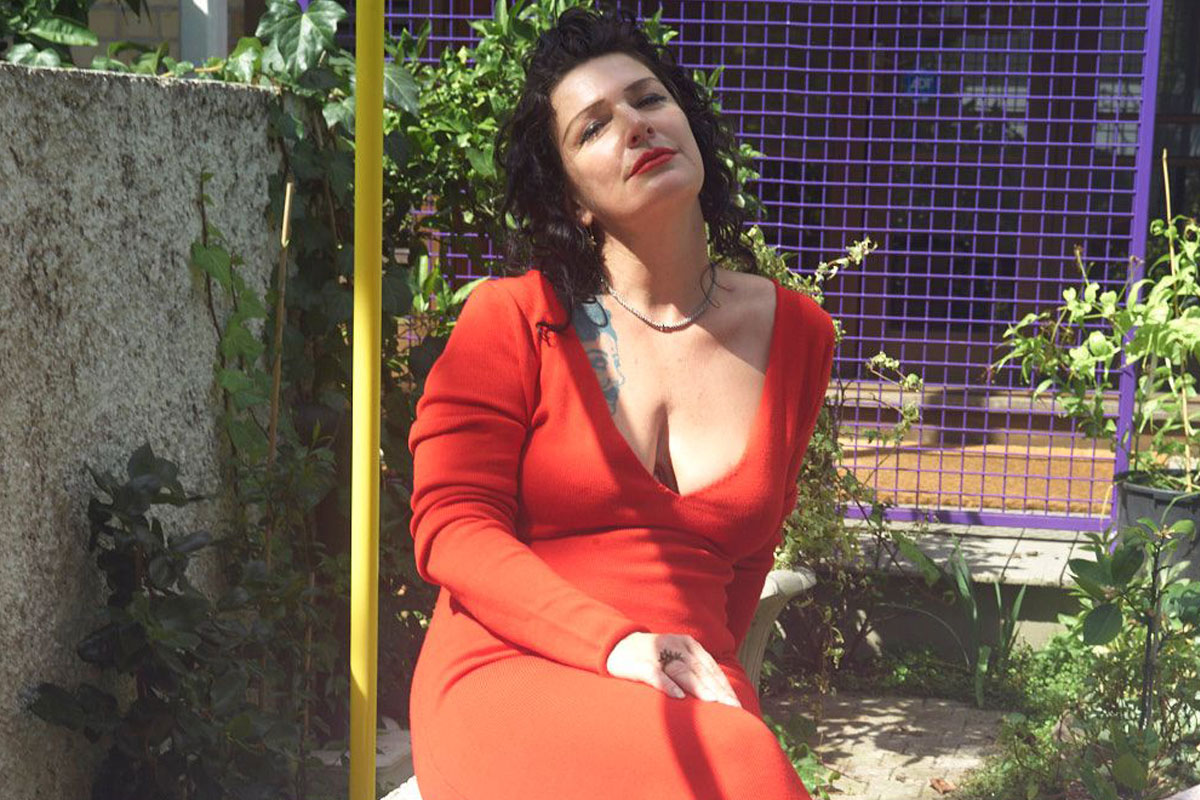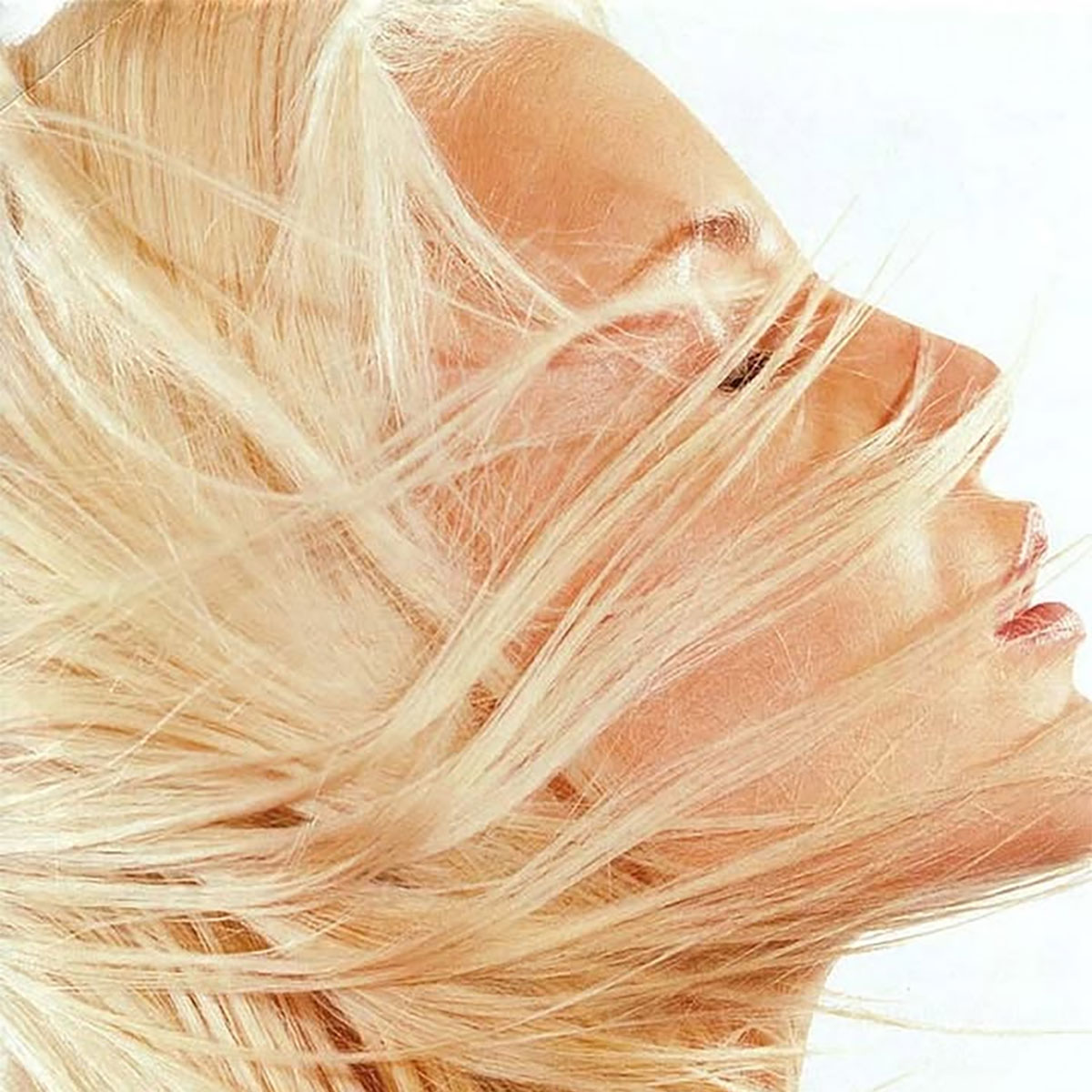
Nadja Auermann, photographed by Michael Thompson for Vogue Paris, May 1994
Primers can sound like one of those extra, kinda unnecessary beauty steps. But they're not just for beauty junkies – a primer for both hair and skin can be a sneaky, effective way to make your products perform better and last longer. Think of primers as your backstage crew: they prep the stage so the stars, aka your other products, can shine.
What Is a Primer?
A primer is a prep product you use before your usual routine, whether that's makeup or hair styling, to create an ideal surface.
For hair, primers are often lightweight sprays or creams with polymers, conditioning agents and heat protectants. They coat the hair shaft, smoothing the cuticle, reducing porosity and making strands more uniform. This not only cuts down on frizz but also helps distribute heat more evenly when styling, preventing damage and making styles hold their shape longer.
For skin, primers are usually silicone- or water-based formulas with added ingredients like dimethicone (for smoothing), glycerin (for hydration) or optical blurring agents (to scatter light and blur imperfections). They fill in pores and fine lines, balance the skin's surface texture and create a barrier that helps makeup grip better and resist sweat or oil throughout the day.
Why Should You Care?
If you're sceptical, it might be worth looking at what’s happening when you use a primer.
On your hair: Hair strands have an outer cuticle layer that can lift, roughen or become porous due to heat, colouring or environmental stress. A primer coats the hair fibre, smoothing the cuticle down and creating a more uniform surface.
This means when you apply heat or styling products, you get less uneven absorption (which leads to frizz or dullness) and more even styling.
Plus, heat-protectant primers use ingredients like soluble silicones or specialised polymers to absorb and dissipate heat, shielding the inner hair structure from damage.
On your face: Your skin isn't a perfectly flat surface: it has texture, oil, pores and sometimes patchiness. You know, all the things that make you a human being with normal texture. But when you apply makeup directly on top, it can settle unevenly or break apart during the day as your skin produces oil or loses moisture.
A primer acts like a flexible mesh between your skin and makeup. The silicone or film-forming ingredients fill in gaps, smooth roughness and create a slightly grippy surface so foundation, concealer or blush can adhere better – and stay there. Some primers also include active skincare ingredients (like antioxidants, SPF or mattifiers) that actively improve your skin while you wear them.
OK So, Do You Really Need One?
You don't need a primer the way you need sunscreen or conditioner. But it will make your life easier and your results better. It's a bit of upfront prep that’ll pay off later.
• If you heat style your hair, a primer is basically non-negotiable for protecting strands from damage.
• Even if you air-dry, a light priming spray can help control frizz, add softness and set the stage for your other styling products to do their thing.
• If you wear makeup and want it to last, blur imperfections or apply more smoothly, a face primer is your best friend.
Prime Time: Our Picks
For face: Grown Alchemist’s Skin Defense Primer is a hydrating, blurring primer packed with glycerin, prebiotic peptides and light-reflecting particles to smooth texture and lock in moisture.
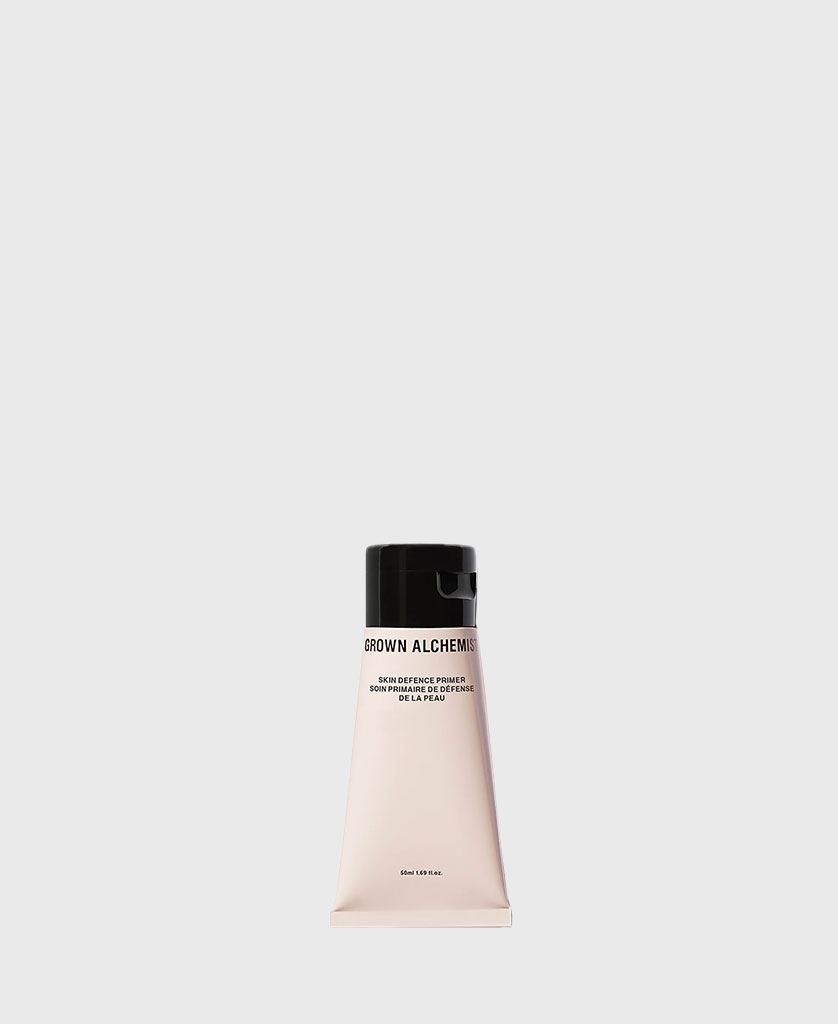
For hair: Try Evo's Day of Grace Pre-Style Primer, Davines' Blowdry Primer or Orbie's Foundation Mist, multi-tasking sprays with heat protection, lightweight conditioning agents and anti-frizz polymers to keep hair sleek, shiny and easy to style. The Love Curl Primer by Davines is made specifically for prepping curls.
